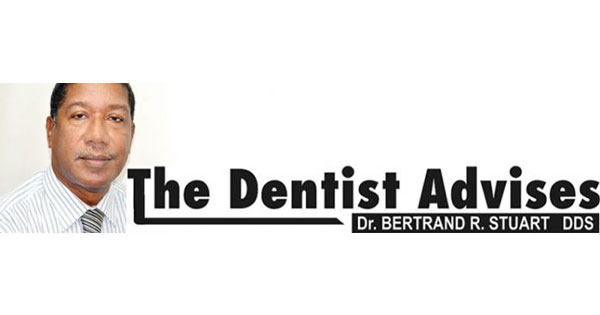
I have no doubt that experienced dentists like me would, and I call those dentists who have a few decades experience, seasoned, like to call the sudden, awful, acute toothache “Christmas disease.” Unfortunately, however, we cannot do that just because Christmas disease is a medical condition called hemophilia B that people suffer from when they do not have a specific blood clotting factor.
Studies have shown that there is a 400 percent increase in new dental cavities in the last two weeks of the year. In addition, more than half of current decay deteriorates to the extent that painful symptoms begin to manifest. Why is this escalation of dental disease generally occurring at Christmas? It is simply because of the increased sucrose (sugar) ingestion coupled with the mouth hygiene attack that accompanies the disruption of normal personal activities during the festive season.
Many moons ago when I was a youngster growing up in South Georgetown, there were only five registered dentists in Guyana. In those colonial days, you had to be in the upper social class or rich to access existing private dental care. Of the five active dentists only two worked at the Public Hospital. So I got my toothache and extraction. As a matter of fact, we will never forget that the worst toothache ever experienced took place on Boxing Day.
A famous dentist witty once said “people have always liked a sweet tooth, but sweet has never liked the tooth.” Cakes, sweets, chocolates and dried fruits are among the most cariogenic (decay-forming) foods and are consumed indiscriminately at this time of year. Dental plaque bacteria ferment these substances quite readily to produce the acid that erodes the tooth’s enamel, causing decay.
In Australia, Cuba, England and the United States, every citizen consumes over 100 pounds of sugar a year. I spent three years in Cuba and a slice of cake was literally dripping sugar syrup. As in these countries, those selling sugar, sweets and beverages in Guyana experience a three to fivefold increase in sales during the Christmas season. Ask any soft drinks vendor how sales during the Christmas season compare to the rest of the year.
For some years now research has been going on successfully in trying to replace sugar with artificial sweeteners. Sorbitol, mannitol and saccharin are produced in increasing quantities. These attribute the sweet taste as a natural sugar. But when one considers that sugar is not needed for good health, there is a clear appreciation that it is worth avoiding, given its harmful effect on teeth and general well-being.
So what can the average person do to counteract the devastating consequences of general neglect and abuse at this time of year besides obeying the conventional health laws? Although largely impractical in our context, avoiding the use of foods containing natural sugars would certainly be a valuable starting point. An individual’s attitude should reflect an understanding of the mechanism of action of the disease process. After that, preventative approaches can be effectively ended without professional advice.
A tooth cannot rot unless acid is involved. The continuous contact of the acid on the surface of the tooth is enhanced by the plaque containing the bacteria and its food (sugar). One of the most powerful mouthwashers can easily be made at home. All you need is half a teaspoon of sodium bicarbonate (baking or eating soda) mixed in a cup (8oz) of water. By the way, baking powder and baking soda should not be confused. Basically, baking powder contains some soda mixed with flour and other substances. The mouthwasher should be bottled and kept at hand. After a cake or similar delicacy, first rinse the mouth and then stir a mouthful of the liquid for at least 15 seconds allowing free contact with each tooth. The soda is intended to neutralize the acid produced by the bacteria.
As an emergency measure for the severely toothache, crush a nail and place it in the cavity. Fluoride-containing toothpaste may also be helpful. Avoid sweet foods. Do not replace aspirin with nail because the problem can be exacerbated by aspirin being acidic. Chewing nails can also freshen the breath when the smell of alcohol causes embarrassment. Contact your dentist as soon as possible.
Have a Happy Christmas Season and no caries!